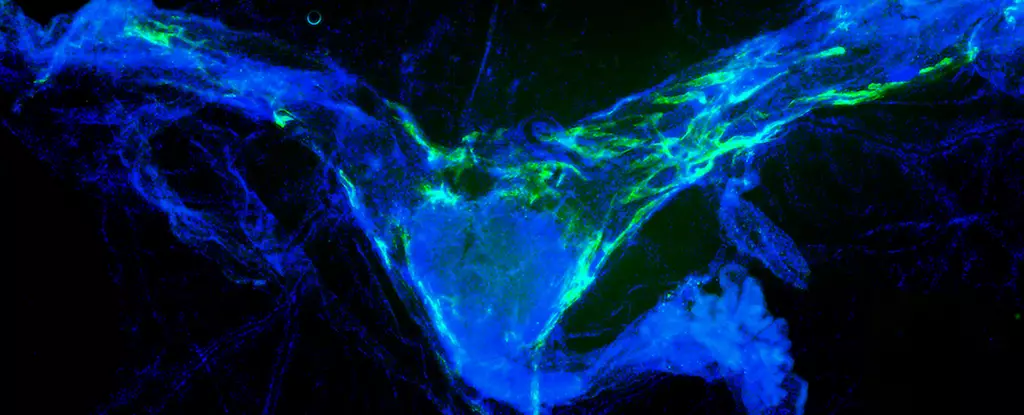As we traverse through life, the capacity of our brains to maintain optimal functionality wanes, a phenomenon often overlooked or dismissed as an inevitable part of aging. This decay can profoundly affect how we interact with the world; it manifests in memory lapses, diminished cognitive abilities, and ultimately leads to the dire specter of neurodegenerative diseases such as Alzheimer’s. While society invests heavily in treatments focused on symptomatic management, a groundbreaking study led by scientists at Washington University in St. Louis has plunged into the heart of the matter: the brain’s waste removal system, particularly the intrinsically linked meningeal lymphatics. Their research reveals a profound potential for rejuvenation that begs the question: can we defy the biological limitations imposed by time?
Unlocking the Secrets of Meningeal Lymphatics
The lymphatic system, often overshadowed by its more glamorous cousin, the circulatory system, plays an indispensable role in maintaining both physical health and cognitive integrity. Comprising vessels that cleanse the brain of metabolic waste, the meningeal lymphatics serve as the unsung heroes of brain hygiene. The innovative approach taken by the researchers involved infusing older mice with a targeted protein treatment designed to stimulate these lymphatic channels. The results were staggering: the treated mice displayed markedly improved memory functions compared to their untreated peers. This discovery resonates deeply, as it intertwines the aging process with potential preventive strategies against dementia—a menace that looms over modern society.
The Interplay of Stress Signals and Immune Function
Compounding the problem of cognitive decline is the presence of stressed microglia—immune cells in the brain that lose their ability to function optimally when inundated with waste. The study identifies interleukin 6 as a significant distress signal released by these overwhelmed microglia, resulting in a cascade of destructive responses that further impede brain function. By administering therapies that invigorate the lymphatic system, the researchers not only enhanced cognitive performance but also significantly reduced levels of interleukin 6. This reveals a dual benefit: improving memory while simultaneously restoring the balance of the brain’s immune landscape. It invites a reconsideration of how treatment approaches are devised, suggesting that we may need to broaden our focus to include therapies that target the foundational systems of brain health.
A Major Leap: Targeting Outside the Blood-Brain Barrier
One of the pivotal findings of this research is the advantage of the meningeal lymphatic vessels located just outside the brain. This anatomical feature presents a key breakthrough in neurological therapy—allowing us to circumvent the formidable blood-brain barrier, which often hampers the effectiveness of treatment for neurological disorders. By harnessing this access point, the research sets a precedent for developing non-invasive therapies that could revolutionize how we combat conditions that thrive on cognitive decline. Considering the growing challenges presented by an aging population, the implications of this finding couldn’t be more critical.
Revolutionizing Our Approach to Brain Health
The implications of this research extend far beyond just the initial findings. They challenge the prevailing dogmas around aging and cognitive impairment, offering a narrative of hope in a space often characterized by resignation. It’s not merely about addressing the symptoms of cognitive decline, but rather about radically rethinking how we can actively protect and restore brain function throughout the aging process. This perspective is especially timely as the scientific community grapples with the rising tide of neurodegenerative diseases, advocating for a transition from reactive treatments to proactive strategies.
The dialogue surrounding cognitive health is ripe for disruption. By prioritizing the brain’s waste management systems and amplifying the role of meningeal lymphatics, we pivot toward a proactive stance that could delay or even prevent cognitive decline. As we unravel the labyrinthine complexities of the brain, one thing is clear: the future of cognitive health lies in innovative thinking and a willingness to challenge the status quo. Through research like this, we inch closer to unlocking the timeless potential of the human brain.


Leave a Reply